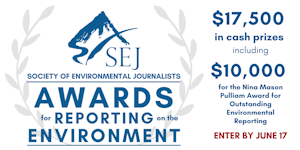"The U.S. launched an international initiative aimed at reducing emissions of so-called short-lived global warming agents, such as soot and methane, in order to make near-term gains in fighting global warming and improving public health."
"The program, which includes participation by Bangladesh, Canada, Ghana, Mexico, and Sweden, will provide funding for developing countries to reduce emissions, and will be administered by the United Nations Environment Program.
The U.S. will contribute $12 million over two years to launch the initiative, known as the Climate and Clean Air Coalition to Reduce Short-Lived Climate Pollutants, with a goal of raising additional public and private funding. The targeted emissions include black carbon, which is more commonly known as soot, ground-level ozone and its precursor methane, and hydrofluorocarbons (HFCs) that are used as refrigerants. Studies show these gases -- all of which remain in the air for a far shorter time period than carbon dioxide (CO2), the main cause of long-term manmade global warming -- may have contributed up to 40 percent of global warming to date.
The new initiative does not set targets for pollution reductions. Instead, the money will go toward education projects and other emissions reduction efforts. Some ways to reduce soot emissions include installing special filters on diesel tailpipes and switching to cleaner-burning cookstoves, rather than biomass."
Andrew Freedman reports for Climate Central March 16, 2012.












 Advertisement
Advertisement 



